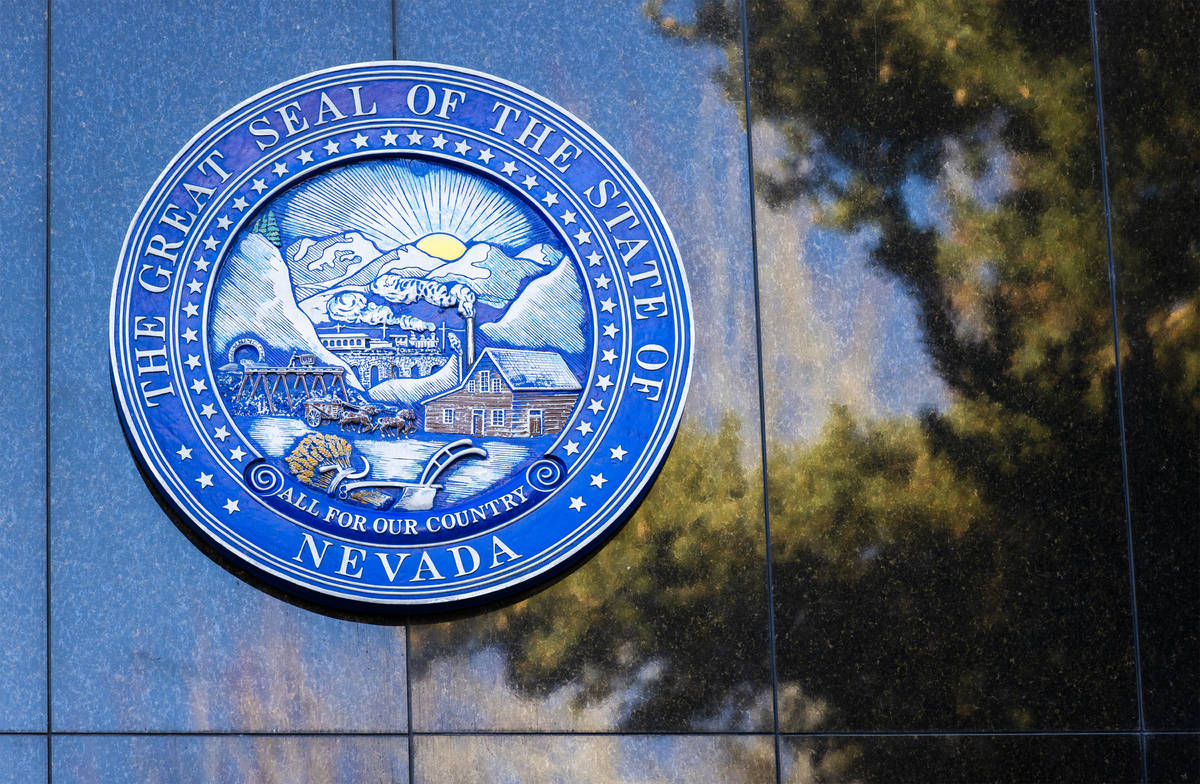Democrats, Republicans tangle over mail-in voting bill
CARSON CITY — Rival Republican and Democratic views on voting in America — the former built on fears of potential fraud, the latter promoting easier access to the ballot — clashed in a legislative committee Thursday over a bill to make mail-in balloting the permanent and predominant method of voting in Nevada.
Assembly Bill 321 would permanently establish voting procedures put in place last year in response to concerns about the risks of in-person voting during the COVID-19 pandemic. The most significant change: providing mail-in ballots to all voters.
“This isn’t Costco,” Assembly speaker and prime bill sponsor Jason Frierson, D-Las Vegas, said in opening remarks on the bill in committee — a nod to now-routine long Election Day lines to vote. “Voting is a right, not a privilege, and waiting in line for seven hours is just simply unacceptable when it comes to such a valuable constitutional right.”
The bill heard Thursday is one several related to elections put forward by majority Democrats aimed at expanding voting, with minority Republicans supporting at least as many bills seeking to tighten voting procedures and restrict ballot access.
Those competing partisan takes on voting are playing out in statehouses across the country. According to figures kept by the Brennan Center for Justice, as of March 24 lawmakers in 47 states had introduced 361 bills with restrictive provisions versus 843 bills with expansive provisions introduced in a different tally of 47 states. Georgia has curtailed its voting procedures, while federal voting rights legislation before Congress would override those and other state-enacted restrictions.
With input from county and state elections officials, the bill heard Thursday rolls back some of the 2020 law’s changes — for example, limiting the grace period for receiving mailed ballots after Election Day to four days instead of seven. But it otherwise makes permanent expanded procedures dealing with registration and verifying, submitting, collecting and counting ballots.
The bill also calls for enhanced training for elections officers and better vetting of registration rolls. Conceptual amendments offered by the sponsor Thursday also would require a minimum number of early and Election Day polling locations and ballot drop boxes, among other changes.
In response to concerns from county elections officials, Frierson said the financial impact of the new procedures would be addressed by lawmakers separate from the policy bill.
Questions from opponents
As Frierson presented, explained and defended the bill from critics Thursday before the Assembly Legislative Operations and Elections Committee, the back-and–forth highlighted the partisan divide over voting.
On a question from Assemblywoman Jill Dickman, R-Sparks, on whether the bill would help restore voter confidence in elections, Frierson pushed back, noting that elections officials in the state “have confirmed that there was no systemic fraud.”
When Assemblyman Glen Leavitt, R-Boulder City, asked Frierson about the practice of gathering and turning in ballots for other voters, a practice critics label “ballot harvesting,” Frierson took issue with the term, called it a “misnomer” and said “ballot assistance” could be done securely.
And when Assemblyman Andy Matthews, R-Las Vegas, asked why automatic mail-in voting was needed in Nevada when the state already offers no-excuse absentee ballots to voters who request them, Frierson cited last year’s record voter participation: Nevada saw more than 1.4 million voters cast ballots in 2020, 48 percent of the total by mail or absentee ballot, 41 percent in early voting and just 11 percent on Election Day.
“Clearly something happened where we had a record turnout, and nearly 50 percent of that was through mail and drop-off voting,” Frierson said.
Though Nevada’s 2020 raw vote count was the highest ever, turnout as a percentage of registered voters was just the fourth-highest. More than 80 percent of registered Nevada voters cast ballots in 2008 and 2012, In 2004, 77.5 percent voted; in 2020, it was 77.3 percent.
Frierson’s bill drew support testimony from groups including the Culinary Local 226 and other labor organizations, the American Association of Retired Persons and progressive and voting rights organizations. Opposition came from state Republican Party officials and individual voters.
The bill will return to the committee for amendments and further action.
Contact Capital Bureau reporter Bill Dentzer at bdentzer@reviewjournal.com. Follow @DentzerNews on Twitter.














